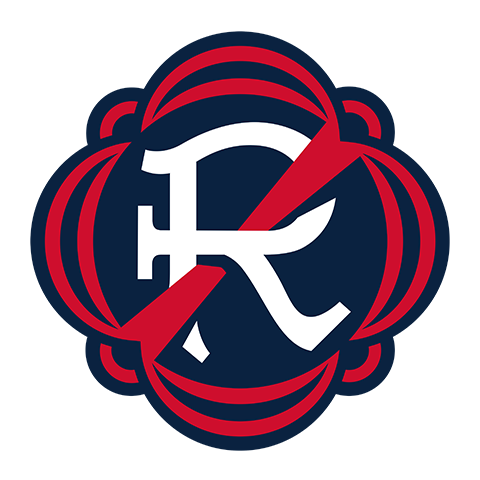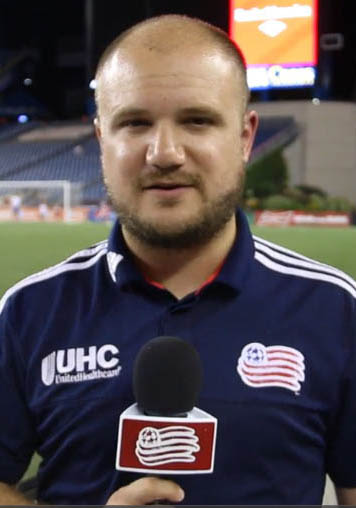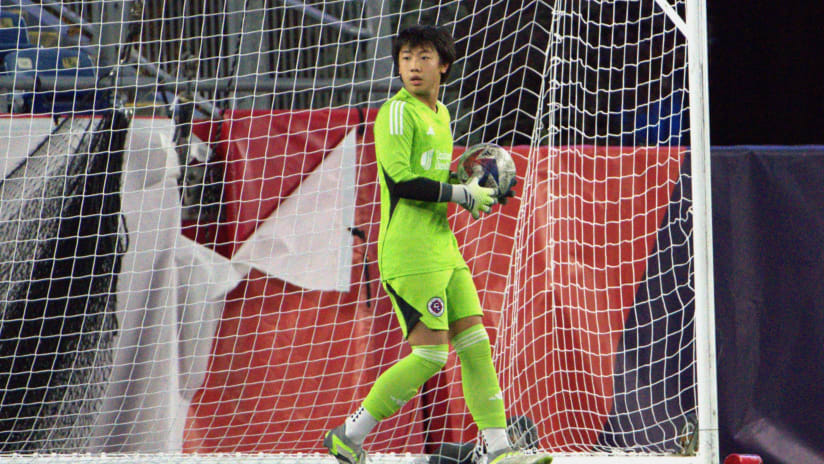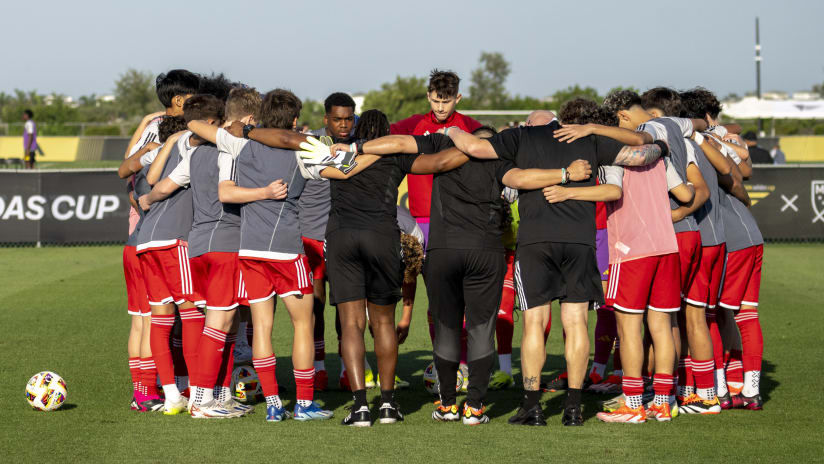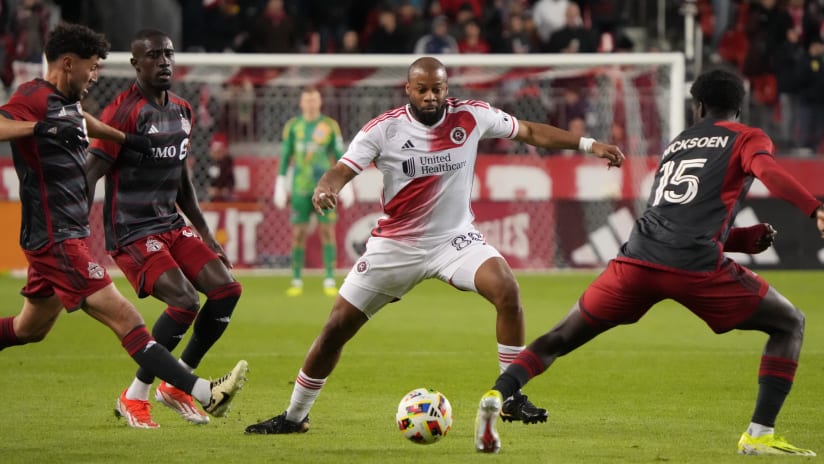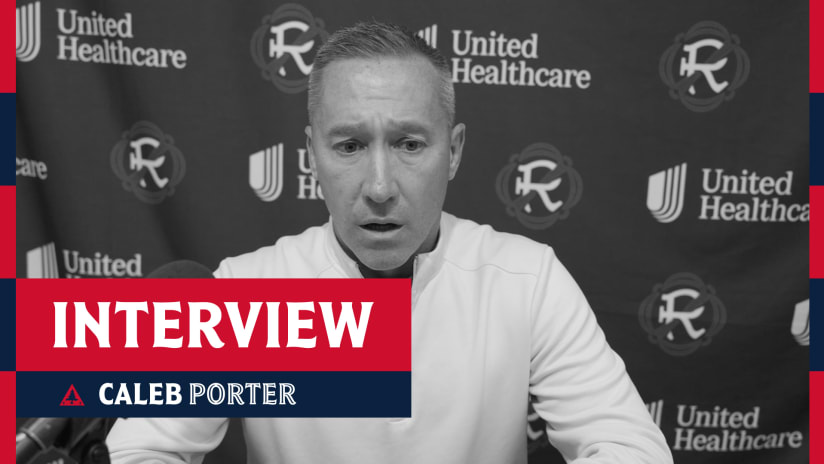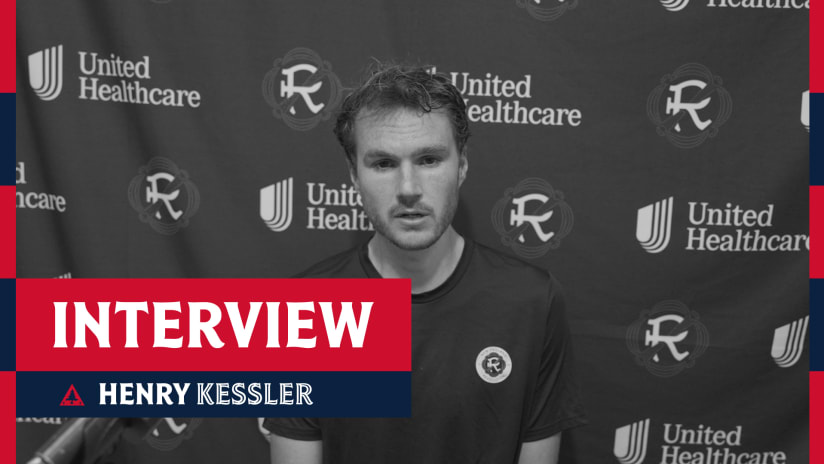FOXBOROUGH, Mass. – As the first two Homegrown signings in New England Revolution history, Diego Fagundez and Scott Caldwell took very different paths to the pros.
Fagundez was a teenage wunderkind, signed at 15 years old while he was a freshman in high school. He made a memorable debut at 16 – drawing a penalty kick two minutes after stepping onto the field and later scoring a goal – and by the time he was 18 he’d put together a 13-goal season.
Caldwell, meanwhile, was the Revolution’s first-ever Academy captain, leading the Under-18 side in 2008. But he wasn’t ready for the professional game as a teenager, and instead spent four years developing under Caleb Porter at the University of Akron, graduating from college before joining the Revs for his 2013 rookie season as a 22-year-old.
But while the Homegrown duo took different paths to the first team, their contributions have been remarkably similar. They’ve both carved out consistent places in the Revolution’s starting lineup, and both have earned the club’s Team MVP honor – Fagundez in 2013 and Caldwell in 2015.
“That hasn’t happened, I don’t believe, with any other team,” said Revs General Manager Michael Burns. “With those two guys, they’ve contributed significantly to our team, and it’s a sense of pride.”
Those contributions came into focus recently with Fagundez becoming the first Homegrown field player in league history to play 10,000 regular-season minutes, beaten to the mark only by D.C. United goalkeeper Bill Hamid.
And who’s next in line to hit the 10,000-minute mark as a Homegrown field player? Caldwell, who’ll enter this weekend’s meeting with the Chicago Fire on 9,592 minutes played.
For the Revolution, the success of Fagundez and Caldwell as Homegrown players hasn’t been anomaly, but the norm. The duo represents two-thirds of the club’s entire Homegrown history along with Zachary Herivaux, signed as a 19-year-old midway through the 2015 season.
So how did a club that has only made three Homegrown signings – a small figure compared to the league leaders in that category – end up with two of the biggest contributors the league has produced?
They planned it that way.
“It’s something that we’ve talked about since forming the Academy,” said Revolution president Brian Bilello. “Our philosophy has been to try to be a league leader in minutes contributed by our Academy players. From a goals perspective, our goal has always been to maximize the number of minutes we have being played by Academy players.
“Where you see that manifest itself is that we don’t necessarily sign a lot of players from our Academy. We try to think about which players are ready to contribute for us. If we don’t think they are (ready), we won’t sign that player.”
It’s an approach somewhat akin to “quality, not quantity,” and it’s working for the Revolution. While the Revs haven’t generated the sheer number of Homegrown signings that other clubs have, they’re near the top of the league in terms of generating first-team production from their Academy.
“Based on the way we’ve been thinking about our Academy, it’s not surprising that both [Fagundez and Caldwell] have been major contributors to the club,” said Bilello. “That’s not to say that every player we sign is going to reach the kind of landmarks that Diego and Scott have reached, but our goal is to have more do that than not.
“We’re not looking to sign six players and hoping that one of them works out from an Academy standpoint. We’re trying to sign three, four, five players and hoping that three, four, five of those players work out.”
“We’ve taken a very selective approach thus far with the players we’ve signed,” added Burns. “We feel like it’s paid off.”
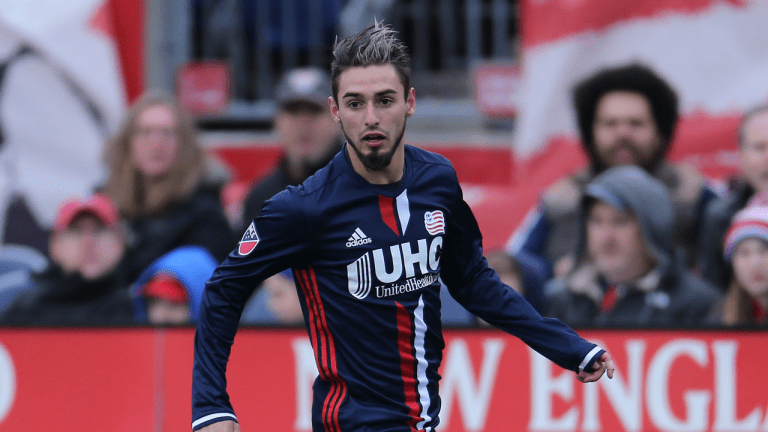
New England have been so selective in their Homegrown signings in part because of the unique nature of Academy players. Many of the athletes have been part of the Revolution family since their early teenage years – or younger – and relationships are formed not only with the players, but with the parents.
Burns referenced the signings of Fagundez and Herivaux, both teenagers when they joined the Revolution first team. There was an open dialogue between the club and their families about the decision to turn pro, and both players had parents present when they signed their contract documents.
“That’s the difference between Homegrown players and whether it’s college-drafted players or international signings,” Burns said. “In a way, when they’re younger like Diego and Zach, it’s more of a family signing. You’re having conversations with the player, but you’re also having conversations with the mother and the father.
“That’s not always the norm, but when they’re kids that have come through our Academy, and you know the family and you know the parents, it’s different than a quote-unquote normal signing. So you want to try to do as best as you can for the organization, but also for the player and his family.”
That approach requires a delicate balance, and a careful understanding of each individual player’s unique set of circumstances.
“We just want to take a very measured approach and be open with our families and our players, and make sure that the decision’s right for both the club and the player,” said Bilello. “I don’t think we want to be club-only in that decision. It doesn’t necessarily mean that we’re not club-first, but with our own Academy players, we have great relationships with them and their families. We really want to make sure that what’s best for the players is a major piece of our decision-making process.”
The care that New England have taken with their Homegrown signings has not only resulted in major contributions from Fagundez and Caldwell – and a still-developing Herivaux – but it has also served as a message to young players currently coming through the Revolution Academy.
While some clubs have released Homegrown players at a remarkable clip, all three Homegrown signings in Revs history remain on the club’s roster. And they not only remain on the team, but they’ve been handed consistent opportunities to play, whether it be in the league or the U.S. Open Cup.
“Hopefully it serves as inspiration for all of our other Academy players,” said Burns. “Because the other thing it illustrates is that we’re not just signing players, but they’re getting opportunities to play.”
“We’re trying to show young players that we want to get you on the team, and we want to get you as a contributor on this team,” added Bilello. “Just signing your first professional contract is not the end game; it’s very much the beginning of your career.
“I hope that our players and their families in our Academy today look at Diego and look at Scott and get an understanding of why we’re trying to make sure that the fit is right and the club is ready to have you, just as much as you think you’re ready to be part of the first team of our club.”
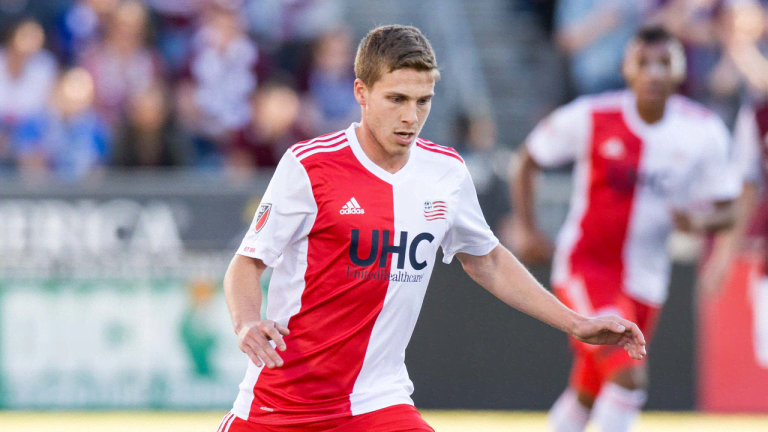
Of course, all of this isn’t to say that the Revs are content with their trio of Homegrown signings. While their philosophy often manifests itself with fewer Homegrown players who play bigger minutes, their objective is always to develop more first-team talent through their Academy.
With the continued guidance of Director of Youth Development Bryan Scales, an ever-expanding Academy coaching staff and added teams at the Under-14 and Under-13 levels, the Revs are confident that they’re on their way to producing more players in the ilk of Fagundez, Caldwell and Herivaux.
“From where we started – and we started from scratch – to where we are now … it’s grown pretty rapidly over nine years,” said Burns. “The goal is to add more Homegrown players to the roster. We would love nothing more than to add more Homegrown players to our roster, but it has to make sense on all fronts.”
